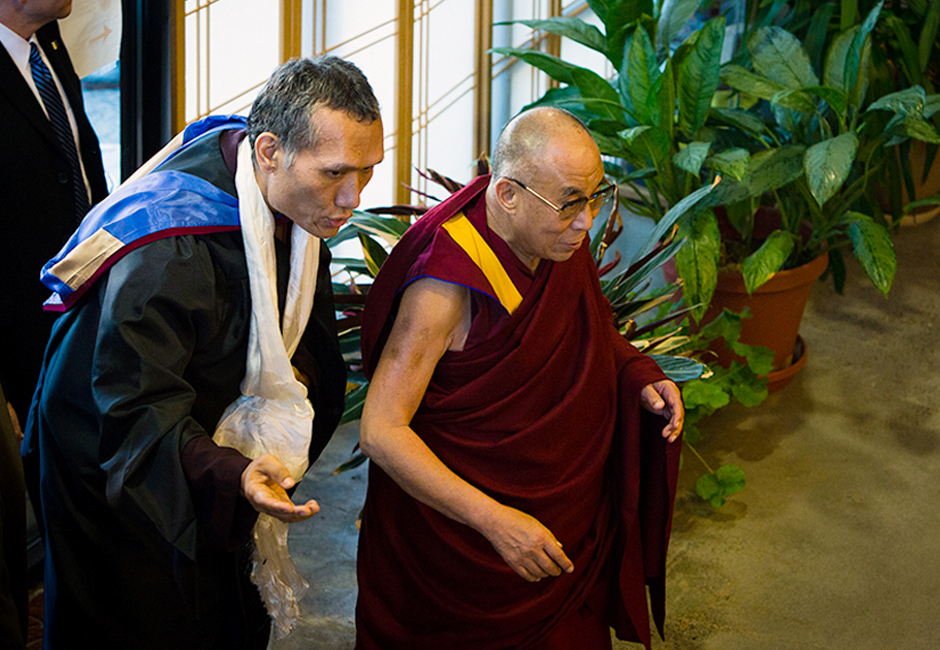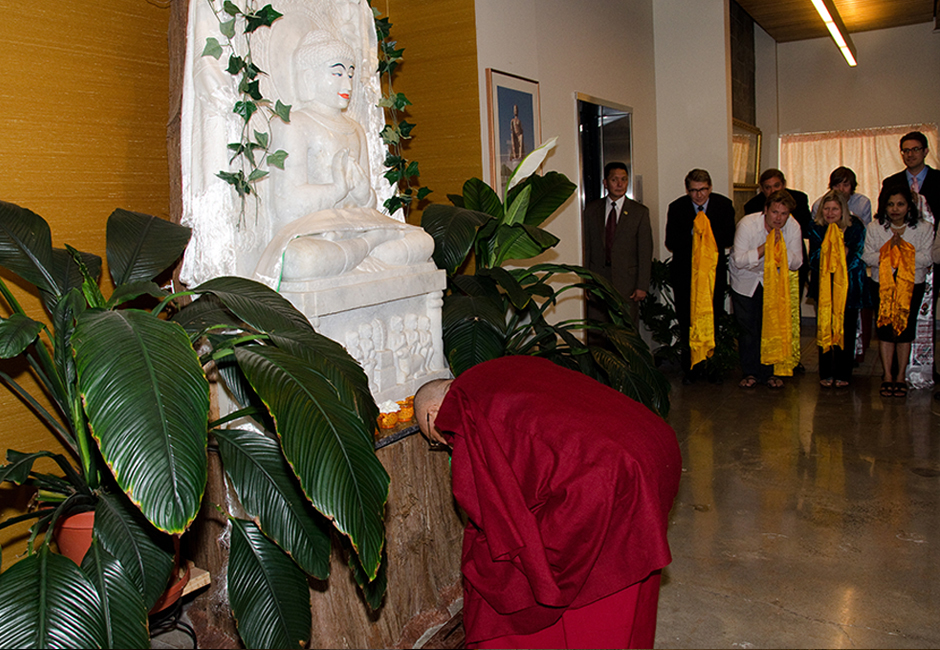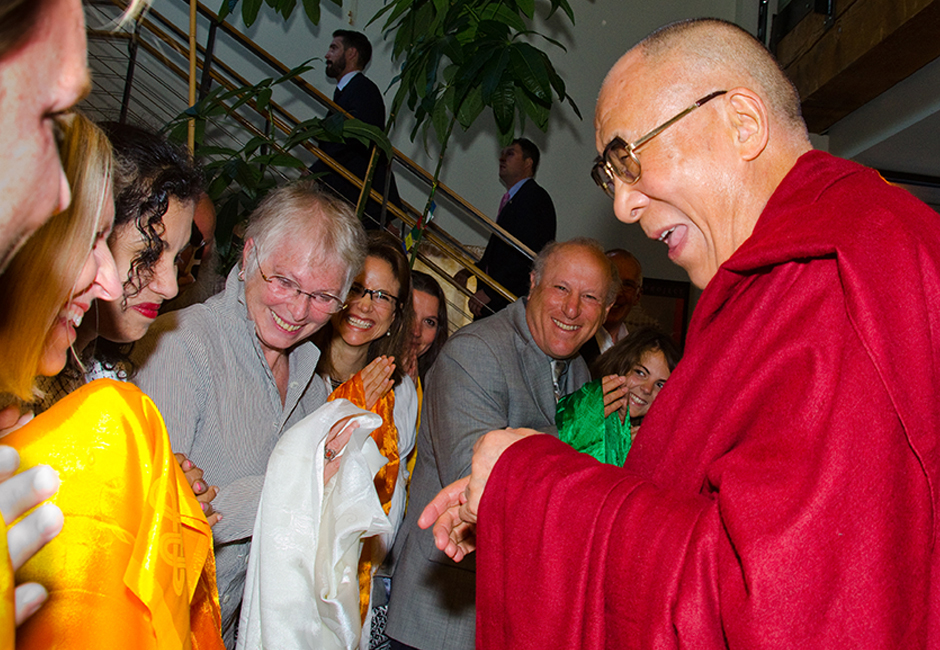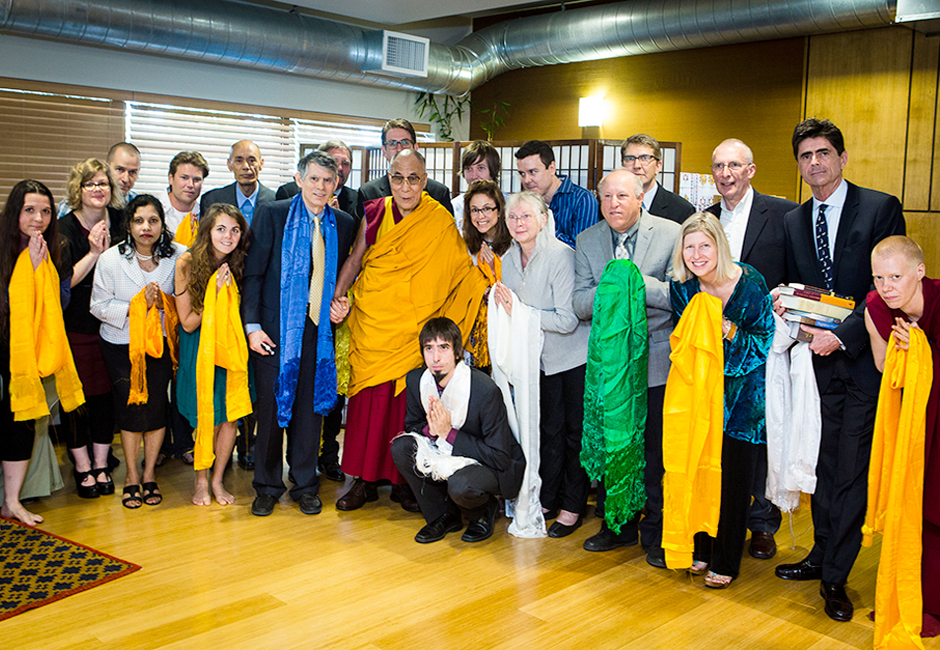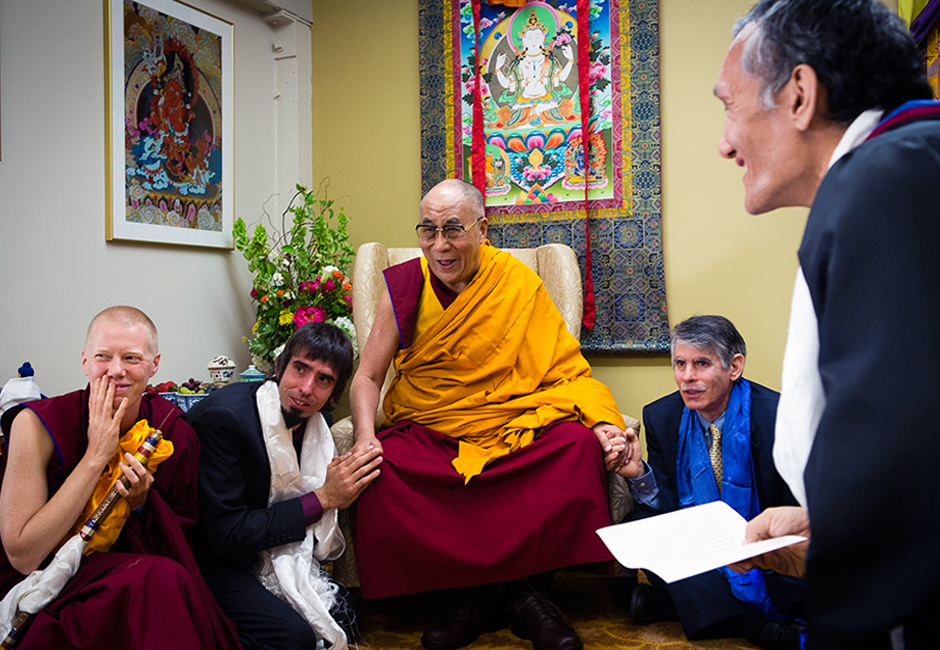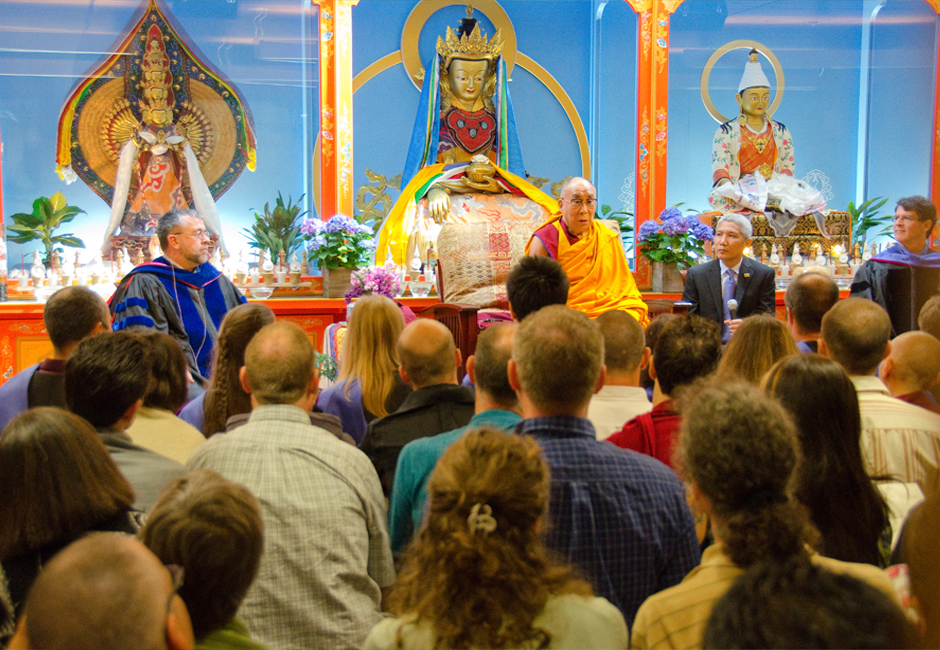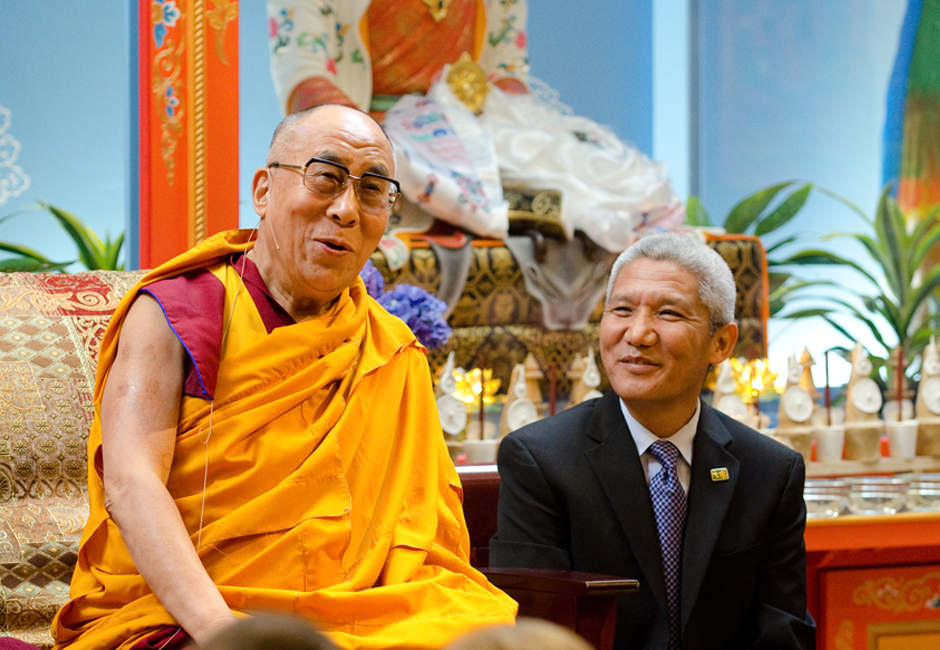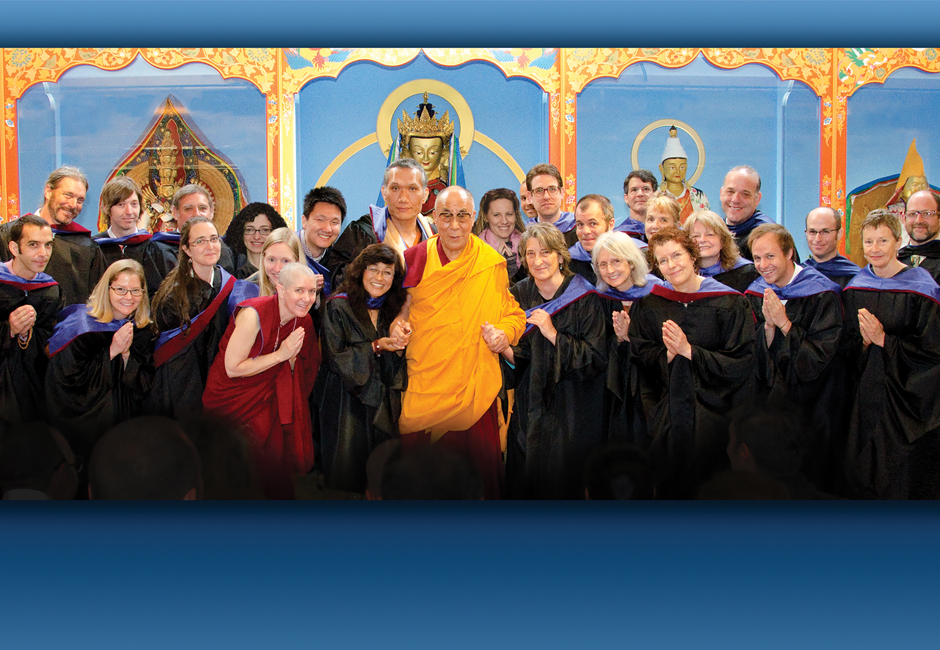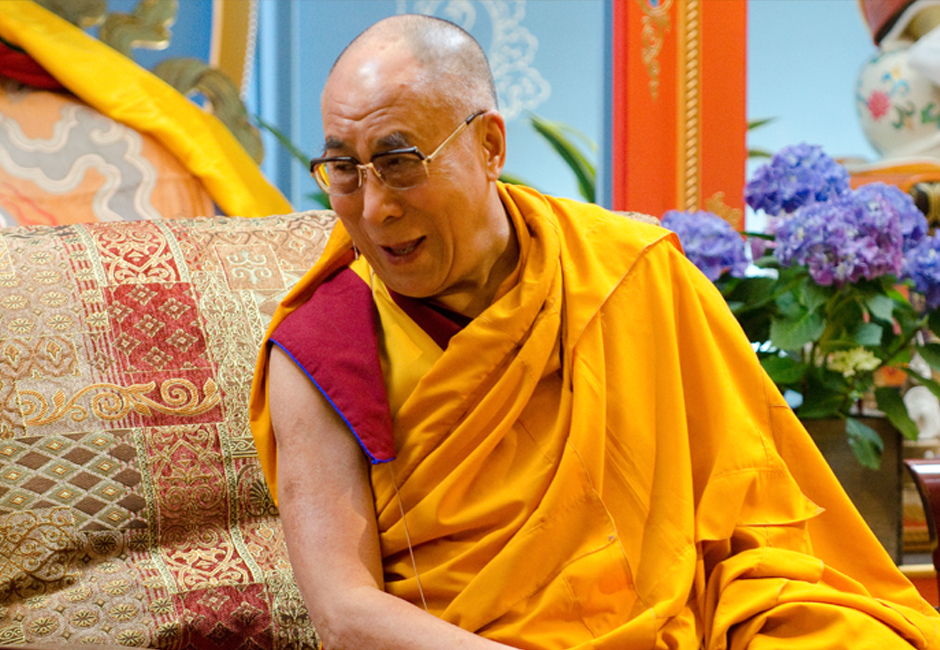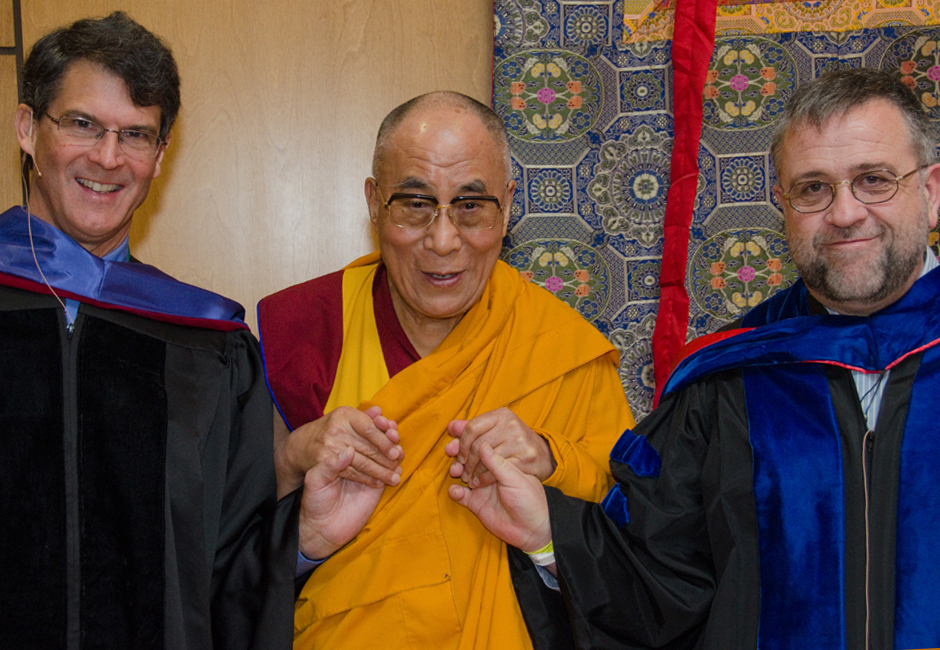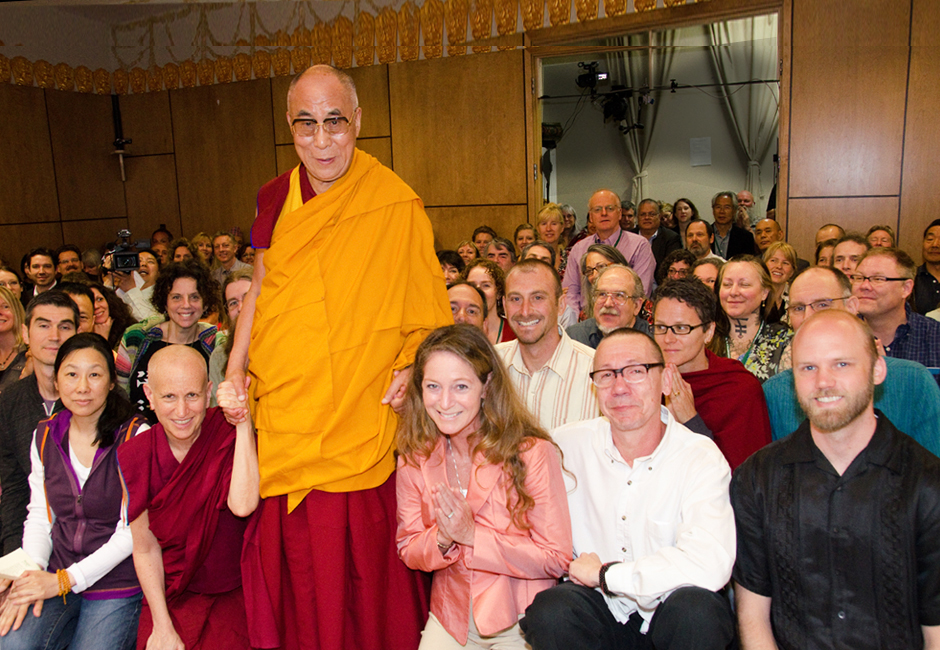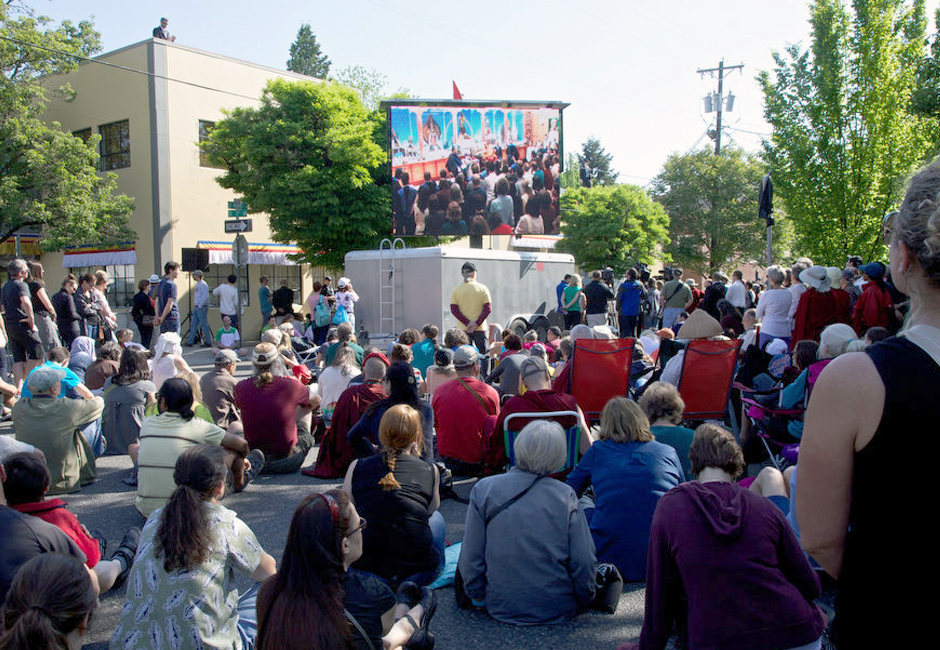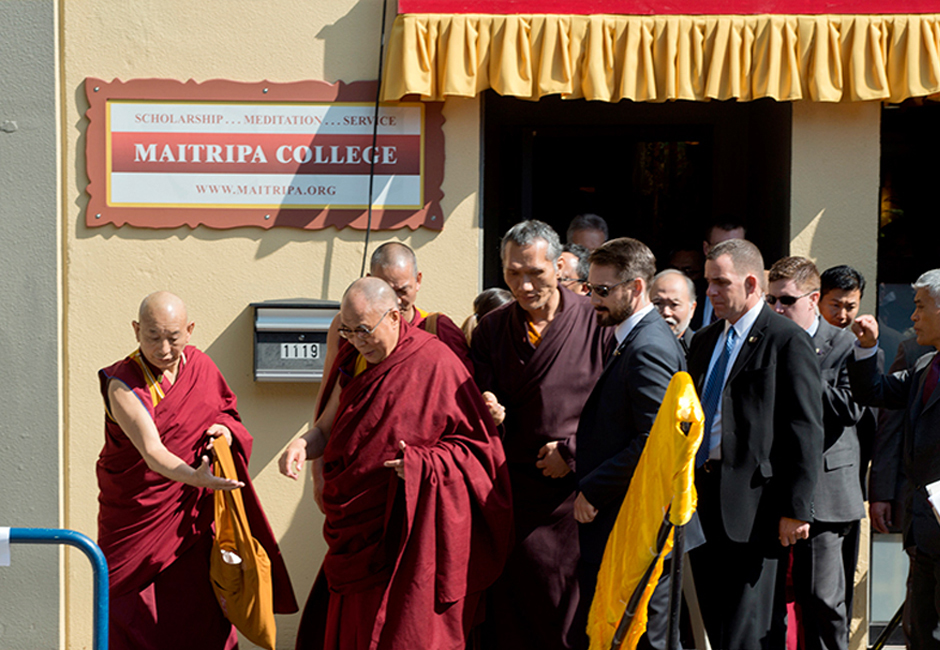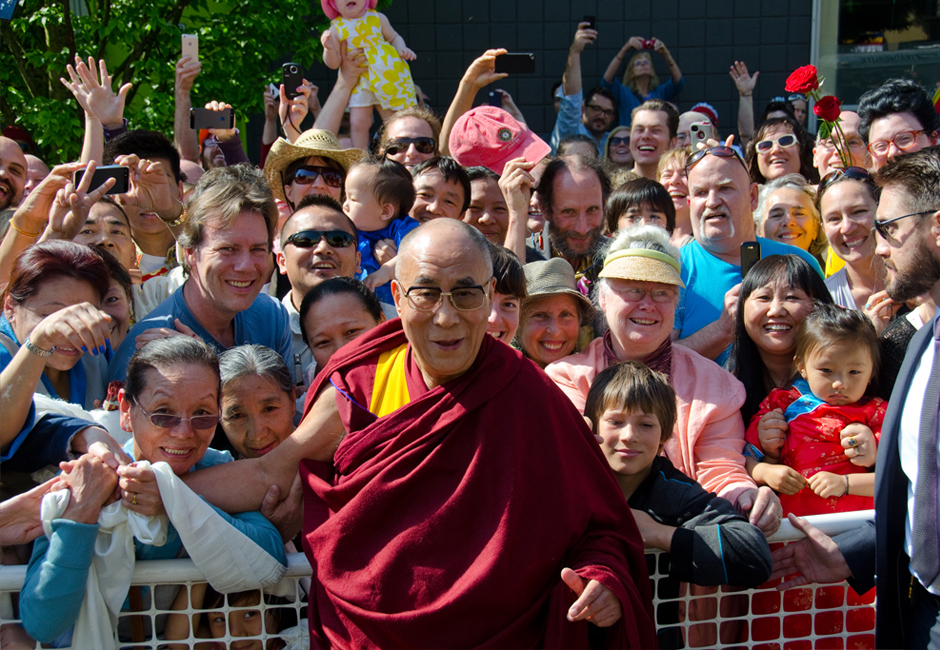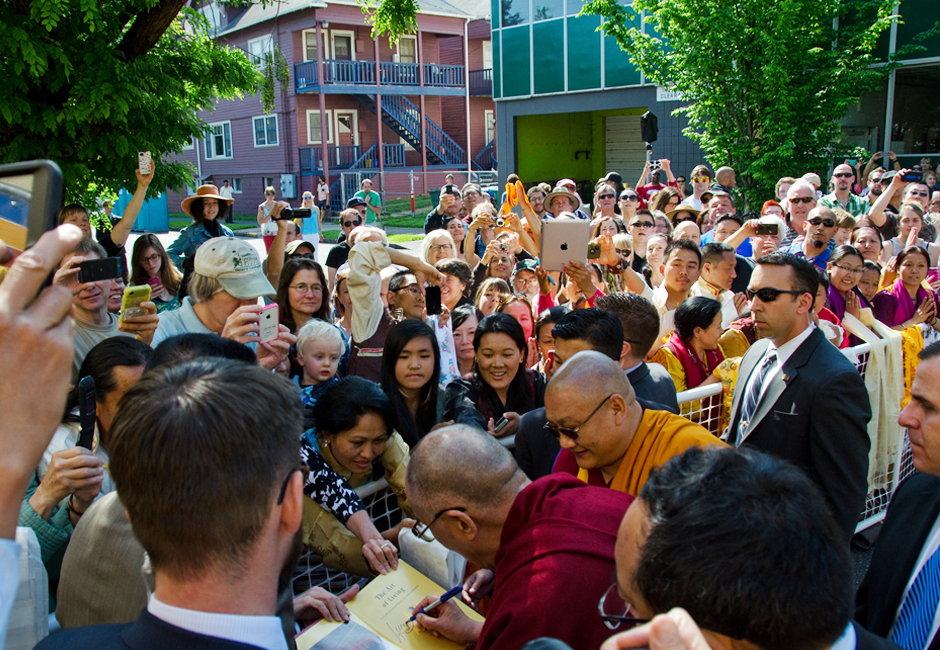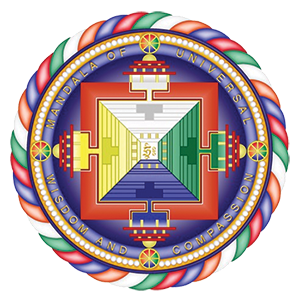On the second day of the historic visit to Portland, His Holiness the Dalai Lama with translator Thubten Jinpa took part in a “Life after Life” Symposium at Maitripa College. They were joined in the discussion by neuroscientist and author of ‘Proof of Heaven: A Neurosurgeon’s Journey in the Afterlife”, Dr Eben Alexander, and José Ignacio Cabezón, the XIVth Dalai Lama Professor of Tibetan Buddhism and Cultural Studies, and Chair of the Religious Studies Department at the University of California Santa Barbara.
The day also included a visit to the international offices of the FPMT and a video welcome by Lama Zopa Rinpoche from Nepal, as well as special meetings with Maitripa staff and alumni and in-person greetings to the joyful crowd that had been watching via a massive video screen set up on the street outside the building.
View video of the Life After Life Symposium in the Maitripa College Jokhang (Meditation Hall)
View photos of the day’s activities
A Report on the Day at Maitripa College
(source: the Office of His Holiness the Dalai Lama)
Portland, Oregon, USA, 10 May 2013 – Maitripa College is a Tibetan Buddhist College founded in 2005 in Portland, Oregon. Since 2008, it has been able to award degrees and today His Holiness the Dalai Lama was the special guest during such a commencement ceremony. The sunlit streets outside were filled with well-wishers who waved and called out to His Holiness as he was met at the door by founding President Yangsi Rinpoche. Escorted briskly around the college, he was shown the various facilities before entering the Jokhang or main hall where he viewed the sacred images and paid his respects before taking his seat. Oregon Office of Degree Authorization representative Jennifer Diallo gave a short welcoming talk in which she introduced Maitripa College and explained the criteria for proper authorization of degrees.
A short symposium followed on the theme ‘Life after Life’. Neuroscientist and author of ‘Proof of Heaven: A Neurosurgeon’s Journey in the Afterlife,’ Dr Eben Alexander began with an account of his personal experience. Four and a half years ago he fell into a coma as a result of developing acute meningitis. During this time he experienced a far grander awareness that he attributes to his mind being temporarily freed from the limits of his brain. The experience entirely transformed his view of past and future lives and the mind’s potential.
Dr José Cabezon, a Buddhist scholar then spoke about reincarnation from an academic perspective. The notion of rebirth is strong in India and yet there is little mention of it in the ancient texts known as the Vedas. There are inklings of it from 8th century BCE and it is referred to more explicitly in subsequent Buddhist literature. Some Indian scholars attempted to prove rebirth on the basis of reason and on the basis of experience. Dharmakirti, for example, responding to materialist challenges, asserted that consciousness was not of the same nature as matter and exists in its own continuity. Empirical accounts of recollections of previous lives were rare in India because, as in the case of Atisha, the Indian master who came to Tibet in 11th century, such things were regarded as private and not to be revealed. Tibetans however took a different view and Dr Cabezon noted accounts in the works of the 3rd Karmapa of events in the life of the first in his lineage, Dusum Khyenpa.
His Holiness took up the theme commending the reliability of scientific research on the one hand, but noting on the other that there are some phenomena, rebirth perhaps among them, that are beyond its capacity to investigate. He mentioned three kinds of phenomena, evident, hidden and extremely hidden, saying that science generally deals with what is evident, but on the basis of inference also touches on hidden phenomena. The third class, extremely hidden phenomena, with regard to the mind, is only available to someone’s subjective experience. It then becomes a matter of testimony, whose reliability depends on the credibility of the informant. His Holiness was careful to point out that something’s being beyond science’s ability to investigate is not the same as science’s proving it not to be so.
“My own observation,” he said, “is that science is beginning to explore the importance of our various mental states. I’ve been having serious conversations with scientists for more than 30 years and these investigations are still in the initial stages. Trying to formulate a theory of consciousness, which is a very subtle phenomenon, only on the basis of a material organ, the brain, is problematic. So too are scientific investigations of animal brains, which are far smaller and different from human brains.”
His Holiness referred to the 300 volumes of Buddhist literature translated mostly from Sanskrit into Tibetan, which can be classified as dealing with Buddhist science, philosophy and Buddhist practice. He said that while those books dealing with Buddhist practice were only of concern to Buddhists, the volumes that deal with science and philosophy can be studied academically by themselves. And it is these texts that contain a wealth of knowledge about the mind and its functions and the workings of our emotions that may be of interest to modern scientists today.
Concluding his remarks, His Holiness expressed his pleasure that Maitripa College has become a centre of learning, recalling that this is what distinguished the ancient Indian University of Nalanda. Yangsi Rinpoche then offered him an Honorary Degree without further ado.

